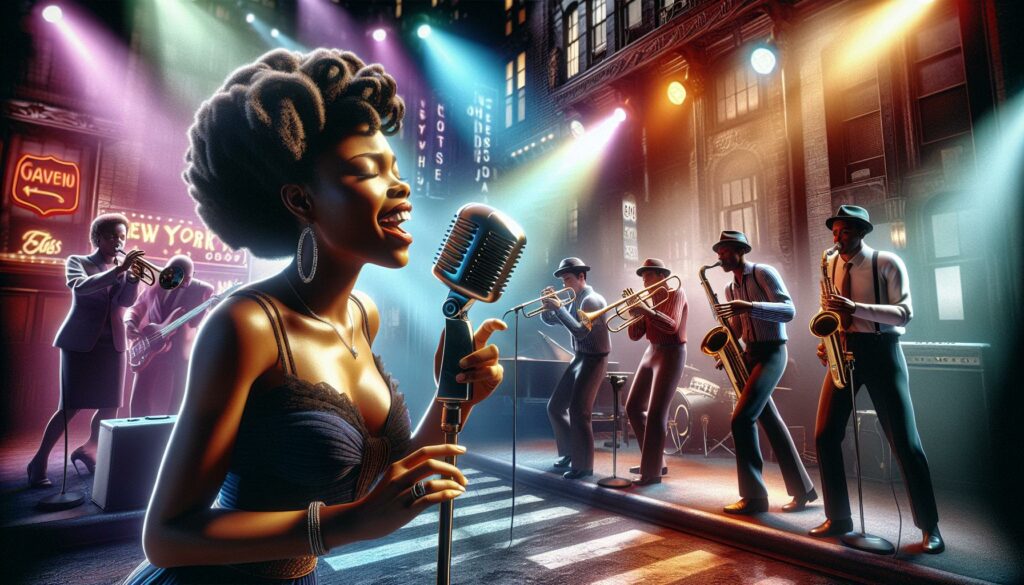When I think of East Coast soul, I’m transported to a vibrant musical landscape that pulses with life and emotion. This genre, rooted in rich traditions, blends the raw energy of rhythm and blues with the heartfelt storytelling of gospel. It’s a sound that not only defines a place but also captures the essence of the experiences that shape its artists.
From the bustling streets of New York City to the soulful sounds of Philadelphia, East Coast soul has carved out its unique identity. It’s a celebration of culture and resilience, reflecting the diverse backgrounds of those who create it. Join me as I explore the origins, key artists, and the enduring impact of this captivating genre on the music scene today.
Key Takeaways
- Origins and Fusion: East Coast soul emerged in the late 1950s and early 1960s, blending rhythm and blues with gospel influences, particularly in urban centers like New York City and Philadelphia.
- Key Artists: Influential figures such as Otis Redding, Solomon Burke, Aretha Franklin, and Sam Cooke played vital roles in shaping the genre and its mainstream appeal.
- Musical Characteristics: The genre is defined by strong vocal performances, intricate melodies, dynamic brass instrumentation, and a mix of smooth and upbeat rhythms that create an emotionally impactful experience.
- Lyrical Themes: East Coast soul often explores themes of love, heartache, resilience, and social justice, enabling deep connections with listeners through relatable storytelling.
- Cultural Impact: The genre has significantly influenced contemporary music, inspiring artists like John Legend and H.E.R. to incorporate its elements, thereby ensuring its legacy remains relevant in today’s music scene.
- Ongoing Evolution: Emerging artists continue to innovate within East Coast soul, blending classic elements with modern sounds, contributing to the genre’s richness and appeal across generations.
East Coast Soul
East Coast soul represents a rich fusion of rhythm and blues and gospel elements. This genre emerged in urban centers, particularly in New York City and Philadelphia. Artists from these cities infused their music with personal narratives, cultural experiences, and spiritual themes.
Key characteristics define East Coast soul, including its strong vocal performances, intricate melodies, and dynamic instrumentation. The use of brass sections and rich harmonies creates a fuller sound, setting East Coast soul apart from its West Coast counterparts.
A few prominent artists shaped the genre, such as Otis Redding, Solomon Burke, and Aretha Franklin. Their contributions paved the way for contemporary musicians who draw from this vibrant style.
The influence of East Coast soul extends beyond its origin. It resonates in today’s R&B, hip-hop, and pop music, demonstrating its relevance. The genre’s ability to connect with audiences through heartfelt storytelling and relatable themes solidifies its ongoing impact on the music landscape.
Emerging artists continue to carry the East Coast soul torch. They blend classic elements with modern sounds, ensuring the genre remains fresh and appealing. Each new contribution enriches the ongoing narrative of East Coast soul.
Historical Context
East Coast soul emerged from a rich tapestry of musical influences, melding rhythm and blues with gospel roots. Its evolution reflects the social and cultural dynamics of the East Coast, particularly in urban centers.
Origins Of East Coast Soul
East Coast soul’s origins trace back to the late 1950s and early 1960s. The genre developed in cities like New York City and Philadelphia, where artists drew inspiration from gospel music, jazz, and rhythm and blues. Notable recording labels, such as Motown and Stax, helped popularize the sound, causing artists to adapt their styles to achieve broader appeal. The genre’s distinctive blend of heartfelt lyrics, smooth melodies, and robust vocal performances resonated with audiences, solidifying its place in American music history.
Influential Artists
Several influential artists shaped the landscape of East Coast soul.
- Otis Redding: Known for his emotive delivery and powerful stage presence, Redding catapulted soul music into the mainstream.
- Solomon Burke: His dynamic performances and rich voice redefined the genre, earning him the title “King of Soul.”
- Aretha Franklin: Often referred to as the “Queen of Soul,” Franklin’s gospel-infused style and introspective lyrics elevated East Coast soul to international acclaim.
- Sam Cooke: Cooke’s smooth vocal style and pioneering songwriting established a blueprint for artists within the genre.
These artists laid the groundwork for contemporary musicians, inspiring new waves of talent to explore and innovate within East Coast soul while maintaining its essential elements.
Characteristics Of East Coast Soul
East Coast soul features a rich combination of musical and lyrical elements that set it apart. This genre embodies heartfelt expression through its unique instrumentation and compelling storytelling.
Musical Elements
East Coast soul showcases strong vocal performances that convey deep emotion. I often notice the intricate melodies that intertwine with powerful harmonies, which create an impactful listening experience. Brass sections frequently enrich the sound, adding depth and texture. The rhythm typically blends smooth grooves with upbeat tempos, enhancing the engaging nature of the music. Artists also utilize background vocalists to emphasize key moments in the songs, driving home the emotional weight. This dynamic instrumentation establishes a distinct sonic identity that differentiates East Coast soul from other genres.
Lyrical Themes
Lyrical themes in East Coast soul often center on love, heartache, and personal struggles. The storytelling approach enables artists to connect deeply with listeners, reflecting shared experiences. I find that many songs incorporate elements of hope and resilience, encouraging audiences to overcome challenges. Additionally, themes of social justice and community resonate throughout the genre, reflecting the historical and cultural context of the urban environments from which it emerged. These relatable themes enable East Coast soul to maintain a strong emotional impact across generations.
Impact On Music Culture
East Coast soul profoundly shaped music culture, influencing various genres and artists alike. The genre’s unique blend of emotion, storytelling, and intricate musicality made significant contributions that resonate today.
Contributions To The Genre
East Coast soul emerged from the fusion of gospel, jazz, and rhythm and blues. Artists like Otis Redding and Aretha Franklin not only popularized the sound but also refined its core elements, including heartfelt lyrics and powerful vocal delivery. Iconic labels such as Motown and Stax championed this style, focusing on polished production and compelling narratives. This solid foundation allowed for the incorporation of brass sections and dynamic rhythms, setting a standard that continues to inspire.
Influence On Contemporary Artists
Contemporary artists draw substantial inspiration from East Coast soul, integrating its stylistic elements into modern music. Musicians like John Legend, H.E.R., and Leon Bridges exemplify the genre’s enduring influence, blending classic sounds with contemporary production techniques. Themes of love, identity, and resilience thread through their work, reflecting the emotive storytelling that characterizes East Coast soul. These artists not only honor the genre’s legacy but also push its boundaries, ensuring that the essence of East Coast soul thrives in today’s musical landscape.
East Coast soul is more than just a genre; it’s a powerful reflection of culture and emotion. The way it weaves together storytelling and intricate musicality creates a connection that transcends generations. I find it inspiring to see how contemporary artists continue to draw from this rich tradition while adding their unique voices.
As I listen to the modern interpretations of East Coast soul, I’m reminded of its roots and the legends who paved the way. This genre not only shaped the sound of its time but also laid the groundwork for the music we love today. The legacy of East Coast soul is alive and well, proving that its heartfelt messages and vibrant melodies will always resonate with listeners.



